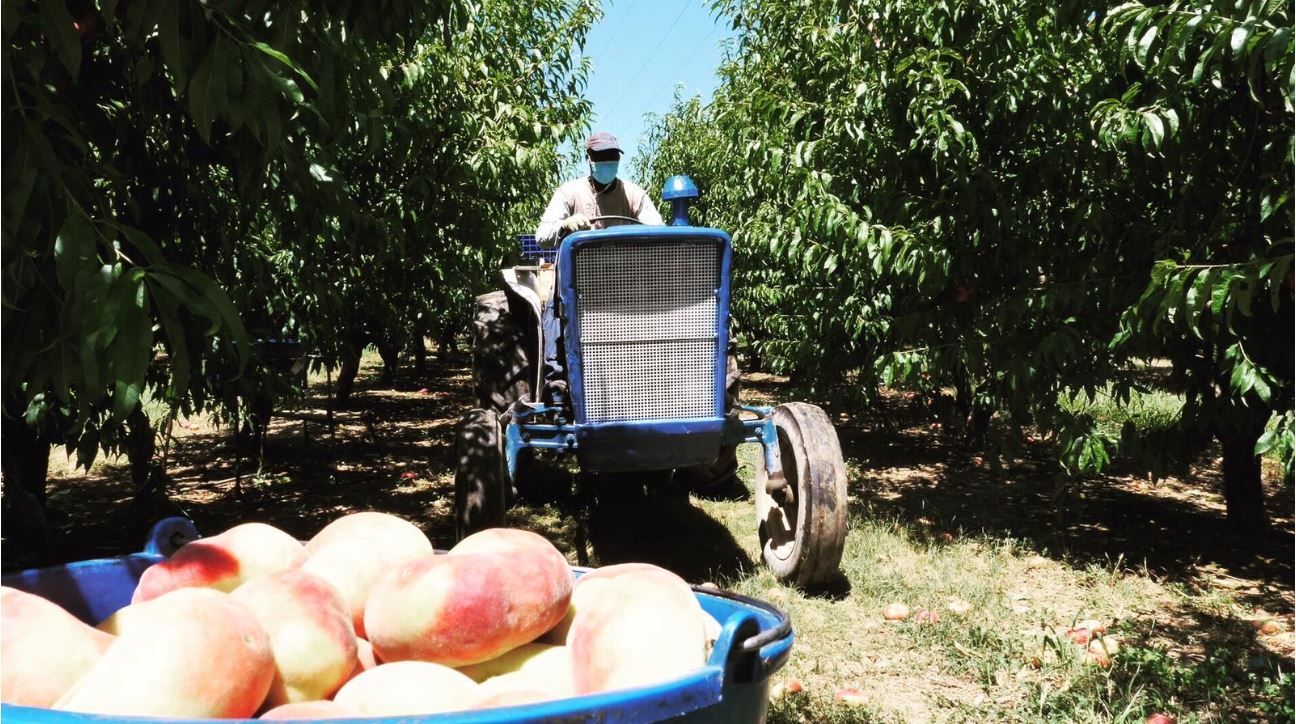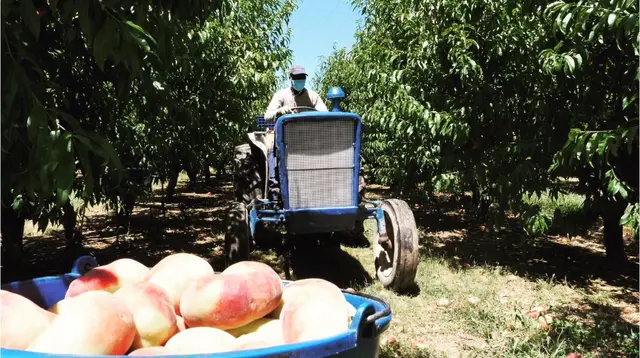
Fruit picking is a popular job for migrants in Spain. / CGTN
A common sight in Lleida is the scores of migrants. They're attracted by the promise of fruit-picking work, however many find themselves on the streets after failing to find employment. The risk of catching COVID-19 is high, but for many, there's no other option.
Arguably the most vulnerable to contracting the virus are the illegal migrants unable to work and forced to sleep on the streets.
The local council estimates that between 50 and 60 percent of migrants looking for fruit-picking work come to Lleida without official papers. Farmers could be fined up to $6,800 for each illegal worker employed.
Farmer Jaume Pedros has suggested legalizing these workers temporarily. "We [the farmers] suggested to the government giving the migrants temporary working visas. They could work for a few months, giving them the chance to find a way to earn a living somehow," he explained.
The health authorities in Spain will be mindful of the infection clusters popping up among migrant workers. The hope will be that the local lockdown in Lleida will be enough to halt a further spread.
Migrant shelters
Some do find themselves at homeless shelters set up by the local council. One that CGTN Europe visited had beds for 250 people, however even here, for the residents' lives are a struggle.
Yassin Ennouali is from Morocco. He's been looking for work without for success for two months."The conditions are worse than bad. They just give you a sandwich and a soup at night, that's it," he told CGTN Europe.
"We go out during the day, but we don't even have a washing machine for clothes, look at all the clothes drying out there, we're treated like cattle," he added.
A social crisis
The lack of work this year has been blamed partly on a huge hail storm in June, which ruined 30 million tons of produce. Many of the migrant workers were originally street vendors from tourist hotspots such as Barcelona.
When the tourism industry collapsed amid the coronavirus lockdown, many workers headed to Lleida. The result was a lot of people looking for work, but few jobs available.
As for the ones who do find work, fruit picking is not without risk. Working outside in the fields does allow workers to socially distance, but often the laborers live and work in cramped shared accommodation, increasing the risk of infection.

The town square in Lleida is almost silent nowadays /Pau BARRENA/AFP
 简体中文
简体中文

